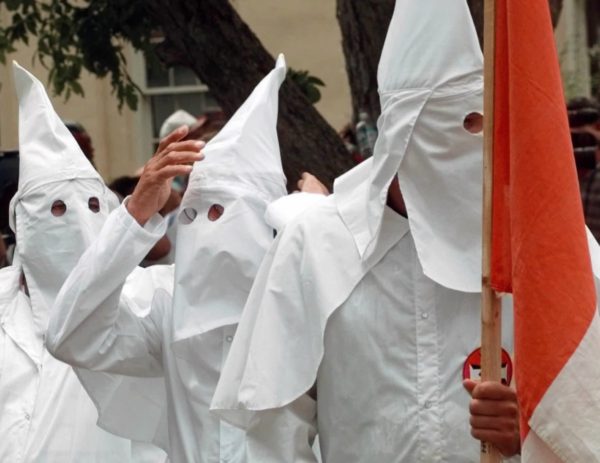Fear of “Racism” is a Nocebo Effect
I have never, and will never, support the cruel form of “racism” that seeks to belittle others for their race or ethnicity, but I will also never support the cruel and insane notion that “diversity” is a functional basis for society. Happy societies are mono-ethnic, and diverse societies self-destruct.
This means that it is crueler to be diverse than it is to be mono-ethnic, or “racist” as some like to call it. Saying that you and your people need to preserve themselves genetically, culturally, and politically is not a radical or selfish statement, but an honest assessment of the facts that history presents to us.
For this reason, sane people need to consider fear of racism as a nocebo effect that is making us ill by forcing us to self-destruct via guilt:
Nocebo has been defined as
a harmless substance or treatment that when taken by or administered to a patient is associated with harmful side effects or worsening of symptoms due to negative expectations or the psychological condition of the patient.
To put it simply, bad expectations and “negative vibes” in a clinical encounter involving a prescribed medication lead to the patient experiencing real harm as an outcome.
The idea of “bad vibes” causing harm goes back centuries. Dr Walter Cannon (the Harvard physician who introduced us to the fight or flight response) discussed this in his well-known article on “voodoo death.” Dr Cannon wrote about this phenomenon in various cultures. He observed that the idea that death would result from a medicine man pointing a bone at his victim was a powerful cultural and spiritual belief. The victim often became hopelessly ill and fatigued over the course of days without any clear cause.
In other words, like the nasty twin of the placebo or fake medicine that brings health in a third of cases, the nocebo is fake medicine that somehow causes the patient to get worse. In the case of “anti-racism,” trying to make diversity work has only sacrificed the West on its altar.
Political nocebos of this nature take the form of banishments of shame. That is, to be “anti-racist” is to banish the shame of “racism,” just like being egalitarian banishes the shame of being wealthy. However, this shame-banishing simply reinforces the source of shame, which creates self-destructive impulses:
Shame is often confused with guilt–an emotion we might experience as a result of a wrongdoing about which we might feel remorseful and wish to make amends. Where we will likely have an urge to admit guilt, or talk with others about a situation that left us with guilty feelings, it is much less likely that we will broadcast our shame. In fact, we’ll most likely conceal what we feel because shame does not make a distinction between an action and the self. Therefore, with shame, “bad” behavior is not separate from a “bad” self as it is with guilt.
Guilt is actual blame for a specific action but shame is the feeling of guilt simply for being what you are. “Anti-racism,” by nature of affirming that the inequalities of nature are wrong, styles those who have succeeded as wrong and those who have not succeeded as right.
This quickly becomes weaponized against whatever group is on top: kings, the wealthy, Whites, and even Jews as we see with the “ceasefire now” trend. Dying societies kill off their best hopes first and then finally achieve equality as low average IQ ruins.
Shame in fact seems to correlate with suicidal ideation:
Shame and guilt are self-conscious emotions that, when generalized and excessive, may confer risk for suicidal ideation Generalized guilt may be uniquely linked with suicidal ideation, yet this association may also amplified by shame
People who believe they have “generalized guilt,” which is essentially what shame is, also believe they are lesser beings or not worth surviving.
For this reason, toxic shame produces a nocebo effect where it seems to be fixing a problem but instead is killing the host population.
“People who feel toxic shame often feel like they’re not good enough and are ashamed of themselves. This can lead to procrastination, perfectionism, and other self-sabotaging behaviors,” says Draughn.
Childhood abuse, neglect, and other traumatic experiences can cause toxic shame and make us believe we’re not good enough.
This lasting and intense internal shame often develops in childhood, when we’re still developing a sense of self and are most susceptible to critical messages from parents, teachers, and other adults about ourselves.
“[P]rocrastination, perfectionism, and other self-sabotaging behaviors” seem to be normal pathologies in our society. Our pursuit of avoidance of real problems while chasing symbolic ones is a form of procrastination; our obsessive demand for total equality is a form of perfectionism, as is our desire to save everyone from themselves.
In short, White people are being sent out on a course of therapy — race guilt — that is designed to destroy us through neurosis and distraction from the important issues. A placebo can save up to a third of patients despite having medical effect; maybe our race nocebo will only kill a third of us before we wake up.
Tags: anti-racism, anti-whitism, guilt, nocebo, placebo, shame










